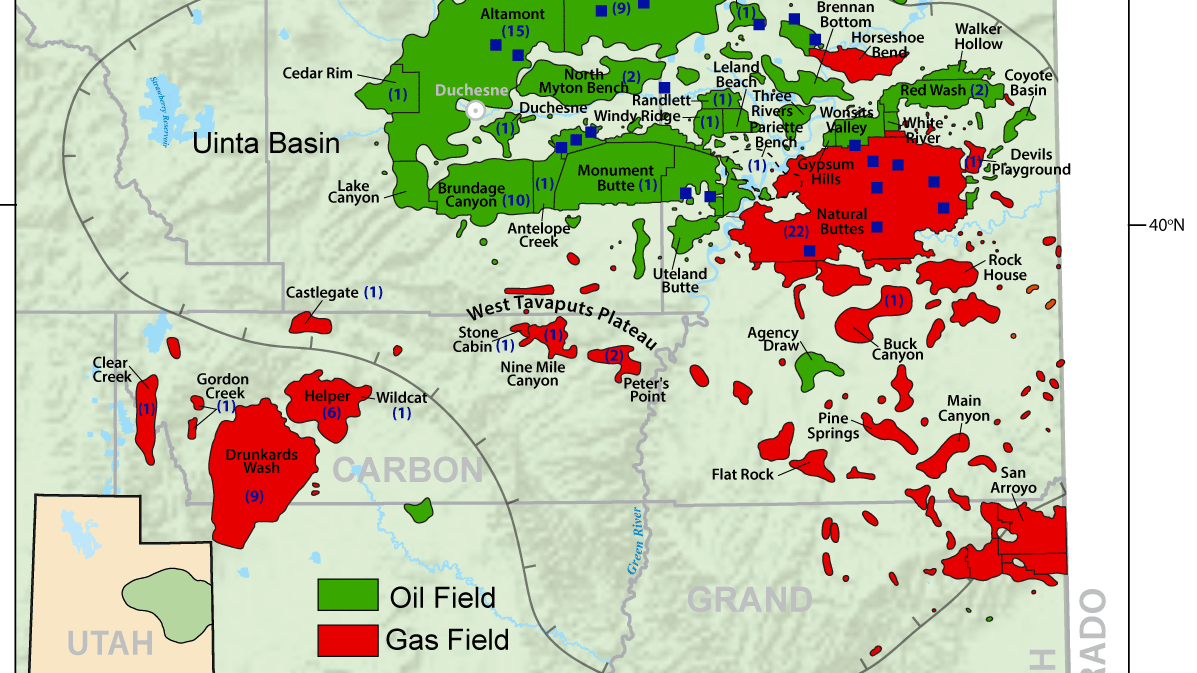Politics
Feds green-light uranium mine in Utah, first project approved under emergency energy declaration

Uranium mine waste (gray-green rock) at the now-closed Shinarump Mine site, 10 miles northwest of Moab. Photo: Foreade // Wikimedia Commons
SAN JUAN COUNTY, Utah — A uranium mine in southern Utah is the first project to be approved under President Donald Trump’s emergency declaration streamlining the development of energy infrastructure.
Owned and operated by the Canadian company Anfield Energy, the Velvet-Wood uranium project received a green light on Friday under the federal government’s new, 14-day environmental review process for energy projects.
The permitting process for similar projects has taken years in the past — but in January, Trump declared a national energy emergency, slashing the environmental review process for a number of energy projects like uranium, crude oil, natural gas, coal, biofuels, geothermal and critical minerals.
Earlier this month, the U.S. Department of the Interior announced the mining project in Utah would be the first to be reviewed. And on Friday, Anfield received approval from the Bureau of Land Management, or BLM.
“This approval marks a turning point in how we secure America’s mineral future,” said Doug Burgum, Department of the Interior secretary, in a statement. “By streamlining the review process for critical mineral projects like Velvet-Wood, we’re reducing dependence on foreign adversaries and ensuring our military, medical and energy sectors have the resources they need to thrive. This is mineral security in action.”
Sitting near the Utah-Colorado border in San Juan County about 40 miles east of Canyonlands National Park, the Velvet-Wood project is the combination of two mines — the existing Velvet Mine, which produced nearly 400,000 tons of ore between 1979 and 1984, and the nearby Wood area, which hasn’t yet been mined according to an economic assessment from Anfield.
“We are very pleased that the Department of the Interior has greenlit our Velvet-Wood project in an expedited manner,” said Anfield CEO Corey Dias in a statement. “This confirms our view that Velvet-Wood was well-suited for an accelerated review, given that it is a past-producing uranium and vanadium mine with a small environmental footprint. The Company will now pivot to advancing the project through construction and, ultimately, to production.”
Anfield has been eyeing this site for years, purchasing it in 2015 and submitting a plan of operation to the state of Utah and BLM in 2024. According to the Department of the Interior, the operation will disturb about three acres, and much of the mining will take place underground.
The normal environmental review process usually takes local input into consideration, weighing environmental and cultural concerns against the project’s goals. That includes a public comment period that, depending on the project, can result in thousands of comments.
According to BLM documents, public input was not required because of the president’s emergency order. Still, the region’s tribal governments have concerns, as noted in BLM’s environmental assessment.
The agency met with representatives from the Hopi, Pueblo of Zuni, Navajo, Pueblo of San Felipe and Ute Mountain Ute tribes, all of whom were critical of the operation and the federal government’s expedited review.
“The Tribal Nations expressed similar concerns with the emergency procedures, water impacts, transportation, and uranium contamination,” the BLM documents read, including worries that the mining and transportation of uranium ore, which would take place near Bears Ears National Monument, could impact cultural sites.
Anfield also owns Shootaring Canyon uranium mill, located in Garfield County between Hanksville and Lake Powell. Just one of three licensed and completed uranium mills in the country, it hasn’t been operational in years — Anfield says it plans to reopen the mill, although that will require additional licensing and infrastructure improvements. If it becomes operational, the mill will be used to convert uranium ore into concentrate to be used in nuclear reactors.
Written by Kyle Dunphey, for Utah News Dispatch



















